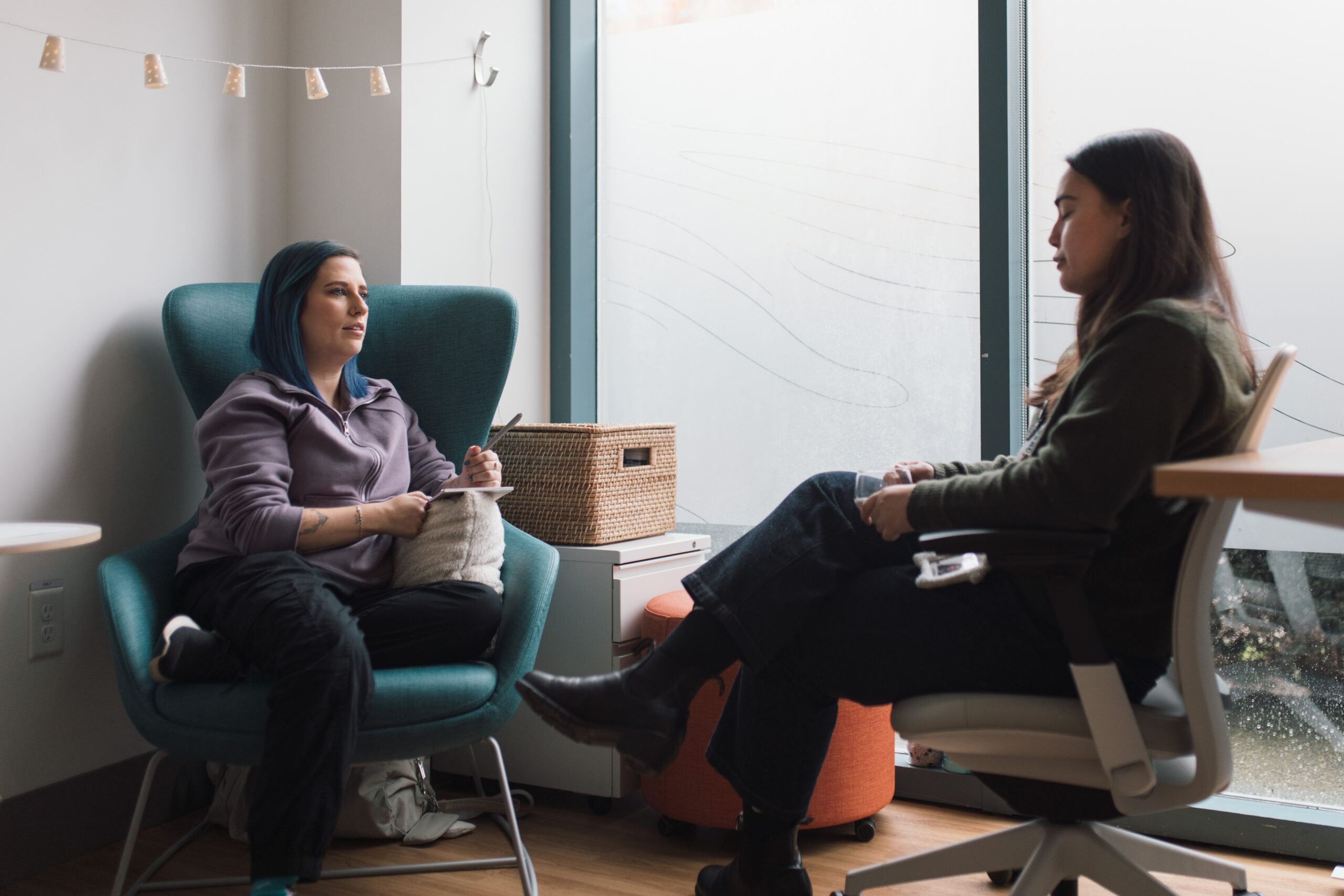Active Listening
Listening is an important part of nurturing relationships with people in your life. When a person knows you’re listening, it can make them more comfortable, especially when talking about tough topics.

When people in our lives want to share something with us, especially when they’re looking for support, we may find ourselves feeling unsure what to say. We connected with youth peer support workers to get some thoughts on how to have supportive conversations with those we care about.
Youth peer support workers are there to connect with young people who are accessing services. Read on below for some tips from them, based off of their personal experiences, on how to be a listening ear for people in our life:
If the conversation is overwhelming, it’s important to take care if yourself first. You can always get support from someone you trust. You can also reach out to trained volunteers over phone or online chat if you aren’t sure who to talk to.
While listening to someone, it’s okay if you’re not comfortable at first with active listening – it’s is a skill that takes time and practice. Active listening is a part of understanding others and helping create a positive relationship with them.
